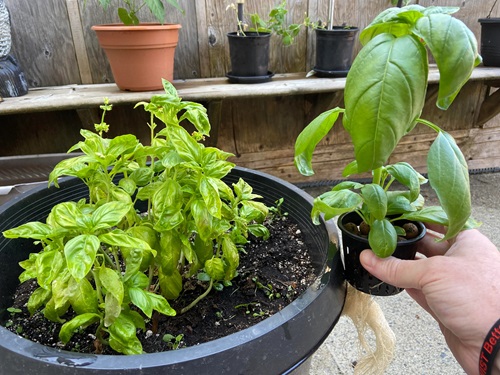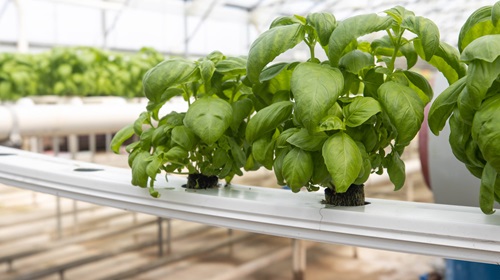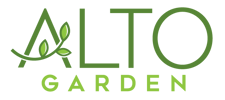Nov 14th 2024
Hydroponic vs. Soil Growing Methods: Which is Better?
Although the methods and resources needed for hydroponic grow systems and conventional soil-based farming are very different, both strive to produce crops effectively and with as little negative influence on the environment as possible.

Evaluating the sustainability and resource efficiency of various farming practices is critically important as the world's food need rises. A very productive and resource-efficient substitute for traditional agriculture is hydroponics, which employs mineral nutrition solutions in water without soil.
Because of its durability, resilience, and cheaper initial expenses, conventional soil-based farming has maintained its dominance for generations. We need to look at the benefits and drawbacks of these methods in order to create better sustainable farming methods. In order to assess the relative sustainability and resource efficiency of hydroponic grow systems and conventional soil-based farming, this article compares both.
Hydroponic Grow Systems
A technique for growing plants that uses water instead of soil is called hydroponics. The fundamentals of handling this include planting crops with their roots exposed to water that has been supplemented with additional nutrients. Because crops can be produced indoors year-round, regardless of climate, season, or weather, this approach is becoming more and more common.
Pros
- An automated system requires less daily maintenance.
- Increased efficiency can lead to faster and higher yields.
- More control over the specific nutrients you are giving our plants.
- Reduced risk of pests and fungus (no need for insecticides).
- Highly water-efficient, resulting in much less water usage and waste.
Cons
- If the hydroponic watering system is complex, problems can be more difficult to repair.
- Set-up and procedures are more involved, costly, and require additional equipment.
- Growers must add nutrients, since there are no natural nutrients in water.
Traditional Soil-Based Farming
The most conventional technique of soil gardening involves planting the plants in a soil container indoors or straight into the ground outside. Soil is where organic debris and minerals decompose, and the roots of plants collect these essential elements. Since synthetic fertilizers do not decompose as slowly as natural minerals, some growers prefer to include extra synthetic nutrients into the soil throughout the feeding cycle.
Pros
- Beginner friendly
- Setup is simple and inexpensive
- Natural supply of soil-derived organic nutrients
Cons
- Daily hand care is necessary, increasing the risk of a mistake like under-watering.
- Increased likelihood of plant illness due to pest-friendly soil.
- Slower growth because soil must break down nutrients before they can be absorbed.
Key Differences Between Hydroponic and Soil Gardening
There are a number of things to take into account when comparing hydroponics with conventional farming.
Space Requirements
A vertical hydroponic garden allows you to save a significant amount of room. This is the primary reason for the rising demand for these kinds of systems. Traditional soil methods require a lot of horizontal space / land to be cultivated at ground level. However, soil-based plants may be grown in smaller areas by using containers, raised beds, and smaller plots.
Water Requirements

Water efficiency is exceptional with hydroponics. There is little water loss from transpiration and evaporation, and the nutritional solution is recycled and re-circulated. Studies have shown hydroponics systems can enjoy water savings of up to 95% compared to soil-based growing. Hydroponic systems are therefore perfect for areas with scarce water supplies. Soil gardening uses more water because most of the water used for irrigation is lost in the ground. Beyond the root zone, water can be lost by runoff and evaporation.
Sustainable Farming and Environmental Impact
Because hydroponic systems don't contribute to topsoil deterioration and don't require chemical fertilizers and pesticides to maintain their crops, they are often significantly more sustainable than conventional methods, consuming far less water.
Initial Cost and Setup
Because a hydroponic system requires specialized equipment like pumps, reservoirs, and grow lights (if indoors), the initial setup costs are greater. These expenses can be compensated for however, by faster and bigger yields and the long-term savings on water. The initial expenditures of soil gardening are usually lower, particularly if you're repurposing an existing garden area. Ongoing expenses can be higher though, include pest management, soil fertilizer, and water.
Efficiency and Yield
Hydroponic systems may grow crops all year round since they are frequently kept indoors. Because of the perfect environment and readily available nutrients in the water, crops frequently grow more quickly in these systems. Even while soil-grown plants might not grow as quickly as hydroponic ones, they can nevertheless form sturdy structures and powerful root systems. Many types of plants, such as flowers, deep-rooted vegetables, and perennials, thrive in soil gardening.
Nutrient Management
Hydroponic systems use a water-based solution to give nutrients straight to the roots. This makes it possible to precisely regulate the quantities of nutrients, which may lead to increased yields and quicker plant development. Fertilizers, soil amendments, and organic matter are the sources of nutrients in soil. A number of variables, including soil pH, texture, and microbial activity, affect the availability of nutrients. Even while soil can provide as a buffer against changes in nutrients, imbalances can still happen and need to be carefully managed.
Final Thoughts
Ready to take advantage of everything that hydroponics has to offer? For gardeners, it's a superior growth solution when compared to soil. However there are a number of variables – such as space availability, available funds, and individual preferences which influence the decision between soil-based and hydroponic cultivation. Growing plants hydroponically has never been simpler thanks to ALTO Garden. This hydroponic tower garden with lights is the ideal choice if you're searching for a hydroponic system that is simple to operate, portable, and adaptable.




